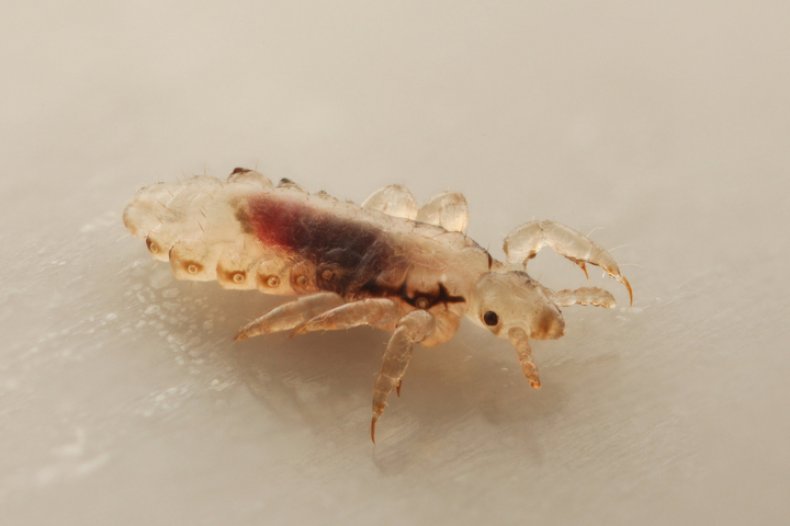Researchers testing the head lice drug Ivermectin as a possible treatment for COVID-19 have seen promising results in lab studies.
But the research is in its early stages and the drug is yet to be tested on people with COVID-19. There’s so much we don’t know, including the right dose and delivery method for people with coronavirus infection.
So if you’re thinking of buying some just in case, think again.
What is Ivermectin currently used for?
Ivermectin is an antiparasitic agent that was isolated in the 1970s from the fermented broth of a species of bacteria called Streptomyces avermitilis.
The drug has been used since the 1980s to treat and prevent diseases related to parasites in humans, pets and livestock, and works by paralysing invertebrate parasites.
In Australia, Ivermectin is mainly used topically in creams and lotions for head lice.
It’s also used in tablet form to treat roundworm infection and as a second-line treatment for scabies and rosacea, a skin condition that causes redness and visible blood vessels in your face.
The pharmaceutical company that makes Ivermectin, MSD, has also been donating the drug to developing countries to treat the parasitic diseases river blindness and elephantiasis for the past 30 years.
What are the side effects and potential harms?
When used at the recommended dose, Ivermectin is generally well tolerated. Some of the common side effects include diarrhoea, nausea, dizziness and drowsiness.
Less common is a lack of energy, abdominal pain, constipation, vomiting, tremors, rashes and itching.
Ivermectin may also interact with some medicines, such as the blood-thinning drug warfarin, or worsen some conditions such as asthma.
Ingesting Ivermectin found in topical products for head lice is dangerous. If this occurs, contact the Poison Information Hotline.
How might Ivermectin treat COVID-19?
Recent laboratory data from scientists at Monash University and the Doherty Institute suggests Ivermectin is able to stop SARS-CoV-2, the virus that causes COVID-19, from replicating.
Ivermectin has also been shown to stop other viruses (such as HIV, dengue, influenza and Zika) replicating, at least in the laboratory.
The researchers found Ivermectin had an effect on SARS-CoV-2 after one exposure to the drug. Viral replication was shut down within 24 to 48 hours.
It’s still not clear exactly how Ivermectin works. But it appears to stop the processes that allow proteins to move within the virus. These proteins would normally dampen the body’s antiviral response, allowing the virus to replicate and enhance the infection.
Where is the research on Ivermectin for coronavirus up to?
This research on Ivermectin has been conducted in cell culture (cells grown in a laboratory) and is very preliminary. It provides some promise, but not evidence of an effective treatment in people (yet).
Rigorous clinical trials in people with or exposed to COVID-19 infection are needed to establish the drug works and is safe to use, and in what doses. The laboratory studies of Ivermectin suggest higher concentrations of the drug may be needed beyond a standard dose to have an antiviral impact. So safety monitoring will be important.
If Ivermectin is found to work on people with COVID-19, it needs to be studied as a potential treatment. So researchers need to know: does it prevent COVID-19 infection, reduce the severity of the associated illness, or improve the time to recovery? These are important questions to be answered before it becomes a treatment for COVID-19.
On a positive note, re-purposing drugs such as Ivermectin as a potential treatment for COVID-19 is ideal because development can move quickly to clinical trial testing because we already know it’s safe to use in humans at currently recommended doses.
Should I buy some just in case?
No. It’s too soon to know if the promising laboratory test results will translate into a safe and effective drug for COVID-19 patients. The researchers were very clear Ivermectin should not be used to treat COVID-19 until further testing is complete.
We certainly shouldn’t be stockpiling the drug to use later, especially since we don’t yet know the best way to take Ivermectin, including the right dose. And it could lead to unintended medicine shortages for people who need the drug to treat serious diseases caused by parasites.
Views expressed in this article are the author’s own.
Andrew McLachlan is Head of School and Dean of Pharmacy at the University of Sydney, Australia.
This article is republished from The Conversation under a Creative Commons license. Read the original article.
Centers for Disease Control and Prevention Advice on Using Face Coverings to Slow Spread of COVID-19
- CDC recommends wearing a cloth face covering in public where social distancing measures are difficult to maintain.
- A simple cloth face covering can help slow the spread of the virus by those infected and by those who do not exhibit symptoms.
- Cloth face coverings can be fashioned from household items. Guides are offered by the CDC.
- Cloth face coverings should be washed regularly. A washing machine will suffice.
- Practice safe removal of face coverings by not touching eyes, nose, and mouth, and wash hands immediately after removing the covering.
World Health Organization advice for avoiding spread of coronavirus disease (COVID-19)
Hygiene advice
- Clean hands frequently with soap and water, or alcohol-based hand rub.
- Wash hands after coughing or sneezing; when caring for the sick; before, during and after food preparation; before eating; after using the toilet; when hands are visibly dirty; and after handling animals or waste.
- Maintain at least 1 meter (3 feet) distance from anyone who is coughing or sneezing.
- Avoid touching your hands, nose and mouth. Do not spit in public.
- Cover your mouth and nose with a tissue or bent elbow when coughing or sneezing. Discard the tissue immediately and clean your hands.
Medical advice
- Avoid close contact with others if you have any symptoms.
- Stay at home if you feel unwell, even with mild symptoms such as headache and runny nose, to avoid potential spread of the disease to medical facilities and other people.
- If you develop serious symptoms (fever, cough, difficulty breathing) seek medical care early and contact local health authorities in advance.
- Note any recent contact with others and travel details to provide to authorities who can trace and prevent spread of the disease.
- Stay up to date on COVID-19 developments issued by health authorities and follow their guidance.
Mask and glove usage
- Healthy individuals only need to wear a mask if taking care of a sick person.
- Wear a mask if you are coughing or sneezing.
- Masks are effective when used in combination with frequent hand cleaning.
- Do not touch the mask while wearing it. Clean hands if you touch the mask.
- Learn how to properly put on, remove and dispose of masks. Clean hands after disposing of the mask.
- Do not reuse single-use masks.
- Regularly washing bare hands is more effective against catching COVID-19 than wearing rubber gloves.
- The COVID-19 virus can still be picked up on rubber gloves and transmitted by touching your face.



















